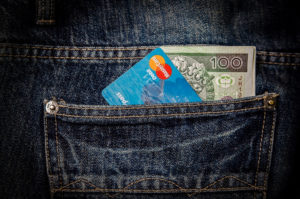 Credit and debt have developed a bad reputation in the consumer market. Many consumers actively work hard to pay down debt balances and dream of becoming debt-free. However, debt and credit are not always a bad thing. In fact, they can be used advantageously in different situations. But first you have to understand what situations call for “Good Debt”. In my article, The Wealthy Buy Assets, the Poor Buy Liabilities, and the Middle Class Buy Liabilities Believing They Are Assets I explain the major differences between “Good Debt” and “Bad Debt” primarily good debt occurs when you use debt to purchase an asset that will generate revenue in the future. Some examples of good debt are starting a business, buying a rental property, or getting an education that will improve your earning power.
Credit and debt have developed a bad reputation in the consumer market. Many consumers actively work hard to pay down debt balances and dream of becoming debt-free. However, debt and credit are not always a bad thing. In fact, they can be used advantageously in different situations. But first you have to understand what situations call for “Good Debt”. In my article, The Wealthy Buy Assets, the Poor Buy Liabilities, and the Middle Class Buy Liabilities Believing They Are Assets I explain the major differences between “Good Debt” and “Bad Debt” primarily good debt occurs when you use debt to purchase an asset that will generate revenue in the future. Some examples of good debt are starting a business, buying a rental property, or getting an education that will improve your earning power.
In the below examples the line between “good” and “bad” debt is a bit less obvious.
When Building Your Credit Rating
Having a good credit rating is important since it allows you to use credit less expensively. Young adults may need to develop a strong credit rating to later qualify for a home loan and other types of financing. Your credit rating is also reviewed when you apply to rent a home, when you get insurance quotes and more. You must show responsibility with your management of credit and debt in order to build a solid credit rating, and with this in mind, credit can be advantageous when it is managed properly. The best way to build a good credit rating is to get a credit card and pay off the full balance every month. This will demonstrate to lenders that you can be relied upon to manage money well and that you take repayment of your debts seriously. This will also prevent you from paying out substantial amounts of your income needlessly as interest.
When Repairing a Damaged Credit History
If you don’t follow the above guidelines for good money management it can result in a damaged credit rating. This can happen a variety of ways including, suffering an illness, losing a job or other financial setback or after going through a divorce. But once your credit history is damaged, you may struggle to get qualified for financing. Your insurance rates may increase, and you may experience other detrimental effects. You will need to use credit carefully to slowly improve your score and to erase the damage that has occurred.
When You Have No Other Options
There are also instances when you have a strong financial need, but you simply have no other financial solution available other than using credit or debt. For example, your car may have broken down, and you need to get the car fixed quickly so that you can use it to get to and from work. Putting the car repair bills on a credit card enables you to pay the expenses over time. However, you should be planning ahead for this type of emergency so you have the assets in the bank to pay off the credit card bill in full when it comes due, thus avoiding the additional interest expenses.
When You Understand When to Seek Help
By definition, a creditor is someone who you owe money to, so this means that you will eventually have to pay the money that you borrow back. You typically must make minimum monthly payments by a specific due date, or you will be in default of the credit agreement you have established. If you are behind on numerous debts and are being hounded by creditors, you may need to contact a bankruptcy attorney to learn more about the financial relief options that may be available to you.
As Robert Kiyosaki author of Rich Dad, Poor Dad says, “A Liability is something that takes money out of your pocket. The poor will buy things. They lack a long term perspective so they buy consumables and enjoy using them up quickly.” This includes:
Cars, Mobile homes (or Trailers), Boats, Lottery Tickets, and Furniture. You should never borrow money to buy these things they are the traps of the poor. See The Wealthy Buy Assets, the Poor Buy Liabilities, and the Middle Class Buy Liabilities Believing They Are Assets for examples of what the Rich do with their money and how they use debt productively.
You might also like:
- How to Calculate Your Credit Score
- What to Do When Debt is Burying You Alive
- Personal Finance Strategy: 4 Keys to Avoiding Bankruptcy
- Who Does Inflation Hurt Most?

